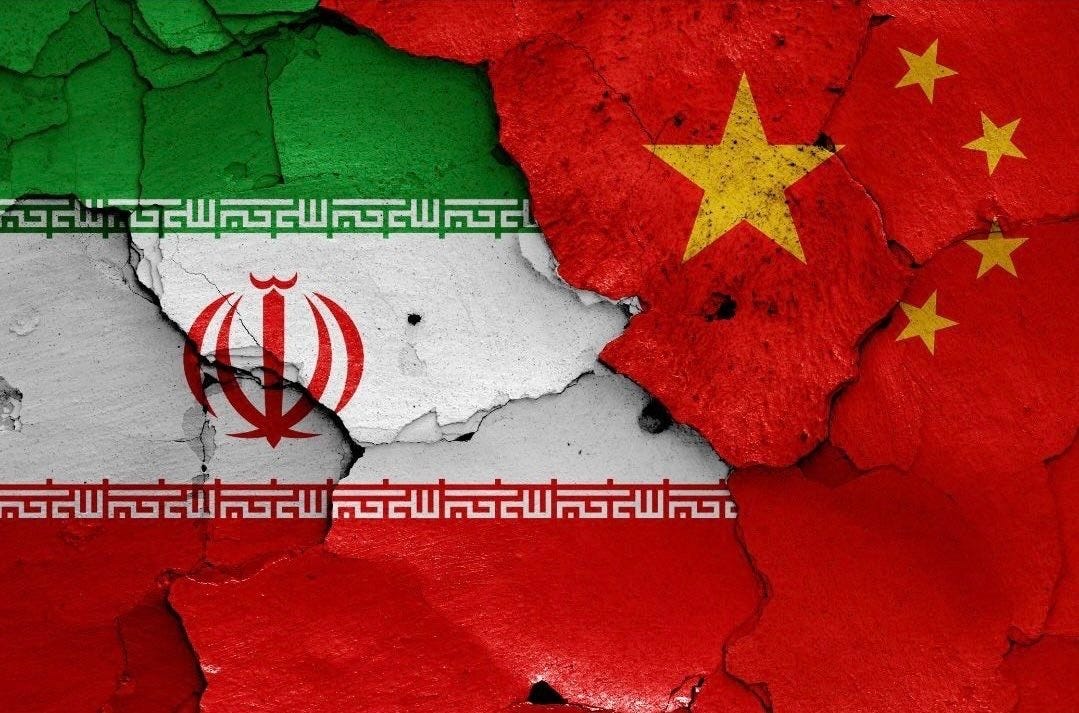SCO Summit: China’s joint statement with Uzbekistan, the longer Mandarin version
Plus, an Iranian journalist argues the real reason behind the country’s quest for full membership
Good evening, China Watchers. Here’s a summary of the two stories we followed today:
China and Uzbekistan issued a joint statement. Xi Jinping and Uzbek President Shavkat Mirziyoyev held talks in Samarkand on the second day of the 22nd Shanghai Cooperation Organisation (SCO) summit. The two countries, which have been expanding relations recently, declared they will further their cooperation.
The Chinese statement signed by Xi and Mirziyoyev on Xinhua.net has more details compared to the English version. So, we translated/analyzed the Chinese statement.
Iran signed a memorandum to join SCO. But why? The Middle Eastern state signed a document on Thursday detailing obligations it’s expected to uphold as a member state. While Tehran has applauded its economic benefits, an Iranian analyst and journalist says there’s a more important motive behind the Islamic Republic’s participation.
Here are the nine key points outlined in the China-Uzbekistan statement followed by our analysis in italics. (The majority of the statement is CCP dog whistle but we tried our best to demystify the intention behind it.)
Foreign policy. Uzbekistan said it firmly adheres to the one-China policy and thinks Taiwan is an inalienable part of China's territory. China in return firmly supports the independence, sovereignty, and territorial integrity of Uzbekistan. Xi made the same statement to Kazakhstan here.
Legislation. The legislative bodies of the two authoritarian regimes will further their cooperation.
Trade. This section covers a wide range of industries but has a focus on the agriculture sector. For example, Uzbekistan said it is willing to increase exports of textiles, footwear, chemicals, petrochemicals, agricultural products, non-ferrous metals and other commodities to China while Beijing promised to expedite the quarantine license approval process of agricultural products and animal products. In addition, China said it’s willing to “study” the provision of preferential loans for Uzbekistan; Uzbekistan said it will establish free economic zones such as the "Uzbekistan-Shanghai Cooperation Organisation" industrial zone.
Infrastructure. The section brings up the construction of railways and highways including the long-anticipated China-Kyrgyzstan-Uzbekistan Railway. (It’s worth noting that China, Kyrgyzstan, and Uzbekistan signed an agreement Wednesday to push the project forward.)
Environment. Nothing interesting in this section.
“Anti-terrorism” and military. The two countries pledged “military technology cooperation” to counter terrorism. The usual terrorism labelling is evidently a reference to Muslims in Xinjiang.
Cultural and data exchange. The two regimes said it is necessary to build the "Smart Silk Road" together while sharing artificial intelligence, big data, e-government and blockchain technology.
China and five Central Asian countries. Beijing in this section proposed official meetings with the leaders of Kazakhstan, Kyrgyzstan, Tajikistan, Turkmenistan and Uzbekistan, indicating an intent to form formal alliances with the region.
Afghanistan. Both countries said they won’t tamper with Afghanistan's internal affairs.
*The Chinese joint statement with Uzbekistan is a bit longer than the one with Kazakhstan.
Iran is one step closer to becoming a permanent member of the Shanghai Cooperation Organisation. Foreign Minister Hossein Amir-Abdollahian said the country signed a memorandum of obligations to join the Central Asian security body.
Tehran has long touted the economic benefits of joining the SCO. In July, a government official announced that Iran exported US$5.5 billion worth of non-oil goods to SCO member states in the second quarter of 2022, a 20 per cent increase from 2021, said a government official in July. However, critics in Iran cautioned that joining an organization that lacks a formal mechanism to boost trade among members would not solve the country’s economic dilemma stemming from sanctions imposed by the west.
In a piece published in the Iranian newspaper Jahan Sanat, columnist Nader Karimi Juni argues that improving trade relations is not in fact the main motive behind Iran’s membership. Instead, Tehran’s top priority is enhancing its military security, especially in light of increasingly strained relations with the west. Joining the SCO opens a door for Iran to strengthen its authority among its neighbours and rivals, increase its bargaining powers in negotiations including the nuclear deal talks, and gain protection as talks of an Arab-Israeli defence bloc gain traction.
Regardless of the real motive, joining the SCO is a sign of deepening relations with China, Iran’s number one trading partner, as well as Russia.
Signing the memorandum does not immediately grant Iran full member status, as it will take some time for the country to go through the required formal process. The expected completion date is April 2023.
But it means Tehran conforms to the organization’s founding charter and Shanghai Convention on combating terrorism, extremism, and separatism. In the convention document, first signed in 2001 and updated in 2009, the member states committed to exchanging information and experience on the implementation of measures and legislation to combat terrorist activities and their sources of finance, weapons, ammunition, and any other assistance. The Chinese Communist Party considers any deviation from the party’s religious, social, and political ideologies to be a form of terrorism or extremism. “Fighting terrorism” has been heralded by Beijing as a justification for its persecution of Uyghur Muslims in Xinjiang, China.
For more on the budding partnership between Tehran and Beijing, check out this analysis by Ghazal Vaisi for the Middle East Institute.






